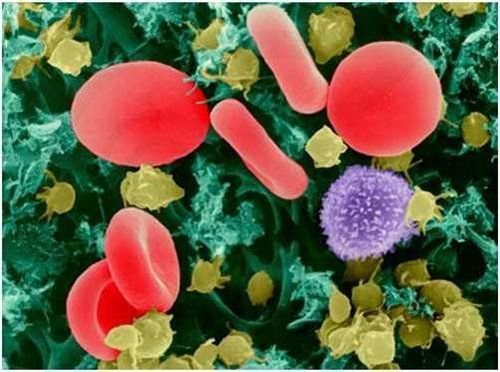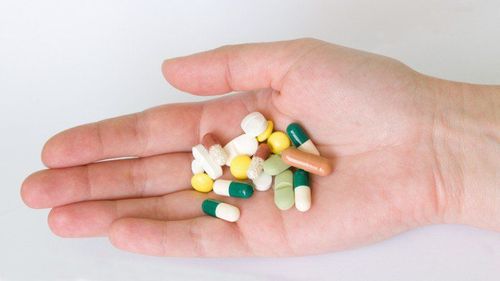Dengue fever is transmitted when a mosquito bites an infected individual and subsequently bites a healthy person. Often, those infected with dengue may mistakenly believe they are experiencing a common fever. Therefore, it is crucial to recognize dengue fever through blood test indicators. This article will guide patients on how to interpret blood test results for dengue fever.
1. Overview of Dengue Fever
Dengue fever is an infectious disease that can be transmitted between individuals through blood. However, the route of transmission requires an intermediary host that carries the dengue virus, specifically the Aedes mosquito. After contracting dengue fever, patients may find it challenging to detect the illness due to vague symptoms or confusion with other diseases such as rash fever, measles, or rubella.
During high fever, patients with dengue may develop widespread erythema that can rapidly increase in extent. If not promptly identified and treated, this condition may lead to thrombocytopenia. Therefore, it is recommended to conduct a dengue fever test when the following symptoms are present:
- High fever exceeding 39 degrees Celsius;
- Prolonged fever unresponsive to treatment;
- Pain or discomfort around the eyes and forehead;
- Widespread red spots appearing on the skin;
- Nausea or vomiting;
- Epistaxis;
- Gingival hemorrhage;
- Petechiae;
- Hematemesis;
- Hematochezia;
- Generalized fatigue;
- Presence of ecchymosis on the skin.
Early diagnosis and treatment can help prevent severe complications such as hemorrhagic manifestations, pleural effusion, hypotension, or infections caused by the dengue virus. The most effective way to diagnose the disease is to analyze specific parameters following blood tests.
2. How to Interpret Blood Test Results for Dengue Fever
2.1. Serological Testing Parameters
Key serological markers to note include NS1, IgM, and IgG. These three indicators can help evaluate an individual's health status. Timing for testing these parameters also needs to be adhered to ensure accurate results and to facilitate early detection of the disease.
NS1 is a diagnostic marker for dengue fever, allowing for detection of the dengue virus within the first five days of illness onset. From the fourth day of illness, dengue IgM antibodies may yield positive results during testing. IgG antibody levels are assessed during the recovery phase of the patient. If antibodies are identified during the acute phase, they typically increase fourfold before reaching a maximum level, after which patients begin recovery. This stage generally occurs 14 days after the onset of the initial fever.
2.2. Hematological Testing Parameters
Hematological tests are more commonly utilized in diagnosing dengue fever. Analysis of complete blood count (CBC) reveals variations in blood parameters corresponding to different stages of the disease. Patients experiencing recovery or the early onset of symptoms will show distinct changes in blood cell counts.
In most cases, patients diagnosed with dengue will exhibit significantly decreased platelet counts, while hematocrit levels will demonstrate a marked increase. This testing is routinely indicated to monitor changes and evaluate the stage of dengue infection.
2.3. Additional Supplementary Tests
- Electrolyte Testing
Individuals infected with dengue fever may experience immune system impairment. Some cases may result in gastrointestinal disturbances leading to electrolyte depletion. Upon conducting an electrolyte profile, healthcare providers will assess and mitigate the risk of electrolyte imbalances for the patient.
- CRP Testing
C-reactive protein (CRP) testing is utilized to evaluate the level of inflammation in patients. Severe inflammatory responses due to dengue virus infection can be detected and promptly addressed. Furthermore, this examination can assess the severity of inflammation and determine if it results from secondary infections.
- Assessment of Plasma Leakage
Patients experiencing plasma leakage may have compromised coagulation processes. Evaluating albumin levels can help determine the ability to synthesize proteins and prevent coagulopathy.
- Assessment of Hepatic and Renal Function
Dengue fever significantly impacts overall health, with particular effects on the liver and kidneys, which require careful monitoring. Impaired hepatic or renal function can adversely affect the patient's health and treatment, as medications used for dengue may inadvertently exacerbate damage to these organs.
3. Significance of Blood Test Indices in Dengue Fever
The results of blood tests can diagnose the risk of dengue fever as well as assess the stage of the disease for appropriate treatment. In patients exhibiting signs of thrombocytopenia, inflammation, and fluctuations in other hematological indices, physicians will proceed to conduct additional requisite analyses.
However, false positive results may occur during testing, leading to some patients receiving erroneous outcomes due to unintended interactions. Therefore, it is advisable to perform regular health check-ups to prevent the risk of contracting dengue fever.
Please dial HOTLINE for more information or register for an appointment HERE. Download MyVinmec app to make appointments faster and to manage your bookings easily.
To arrange an appointment, please call HOTLINE or make your reservation directly HERE. You may also download the MyVinmec app to schedule appointments faster and manage your reservations more conveniently.








